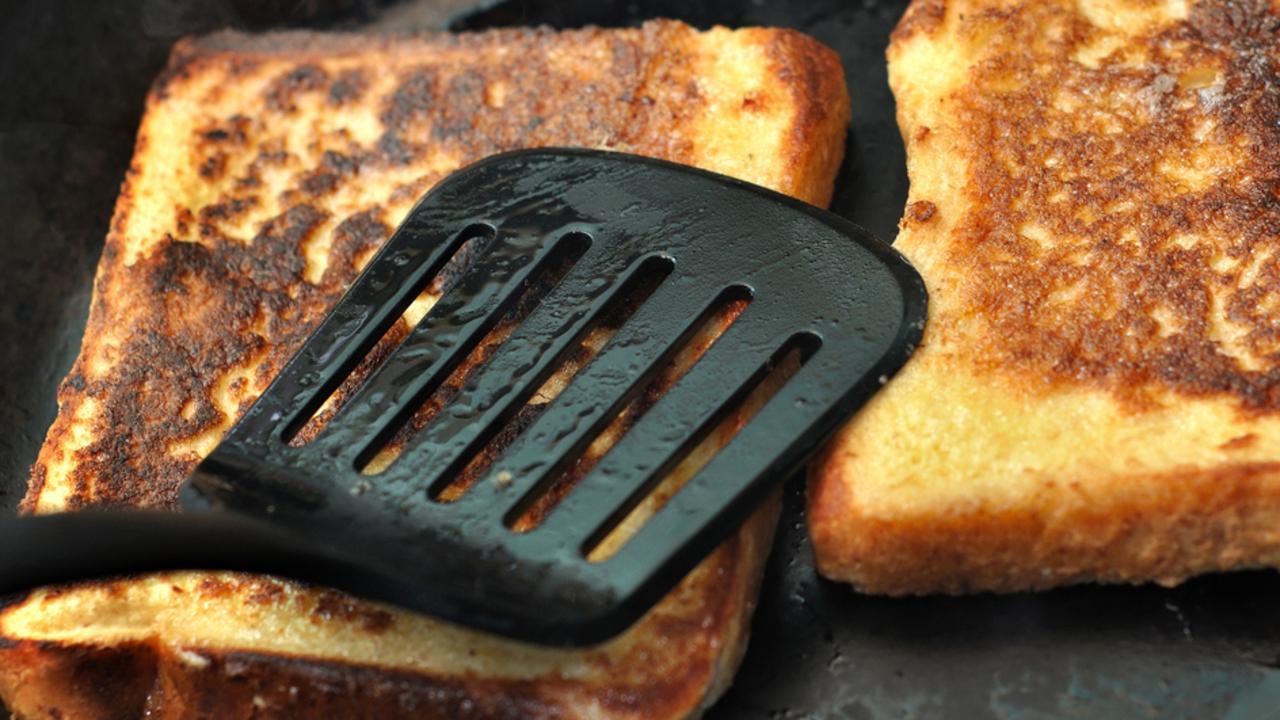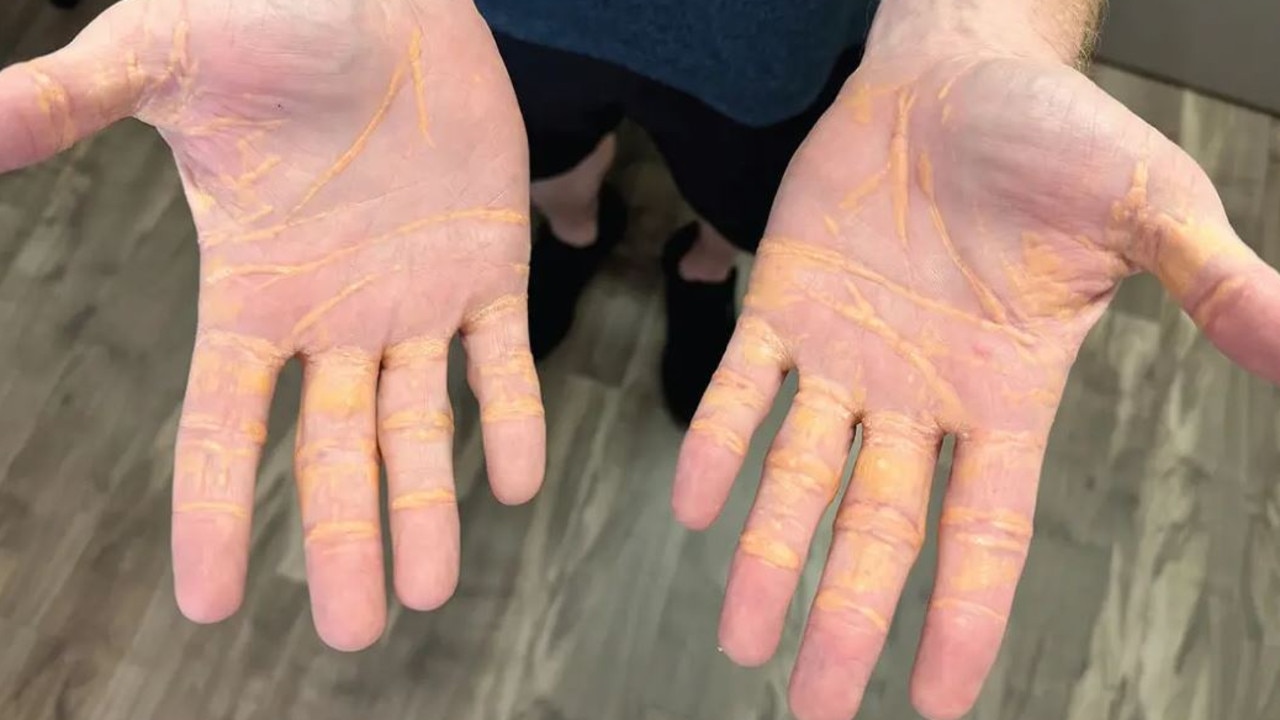Dr Zac Turner on whether men with higher testosterone go bald
It’s often thought that “macho” men with higher testosterone are more likely to go bald but Dr Zac Turner reveals another reason.
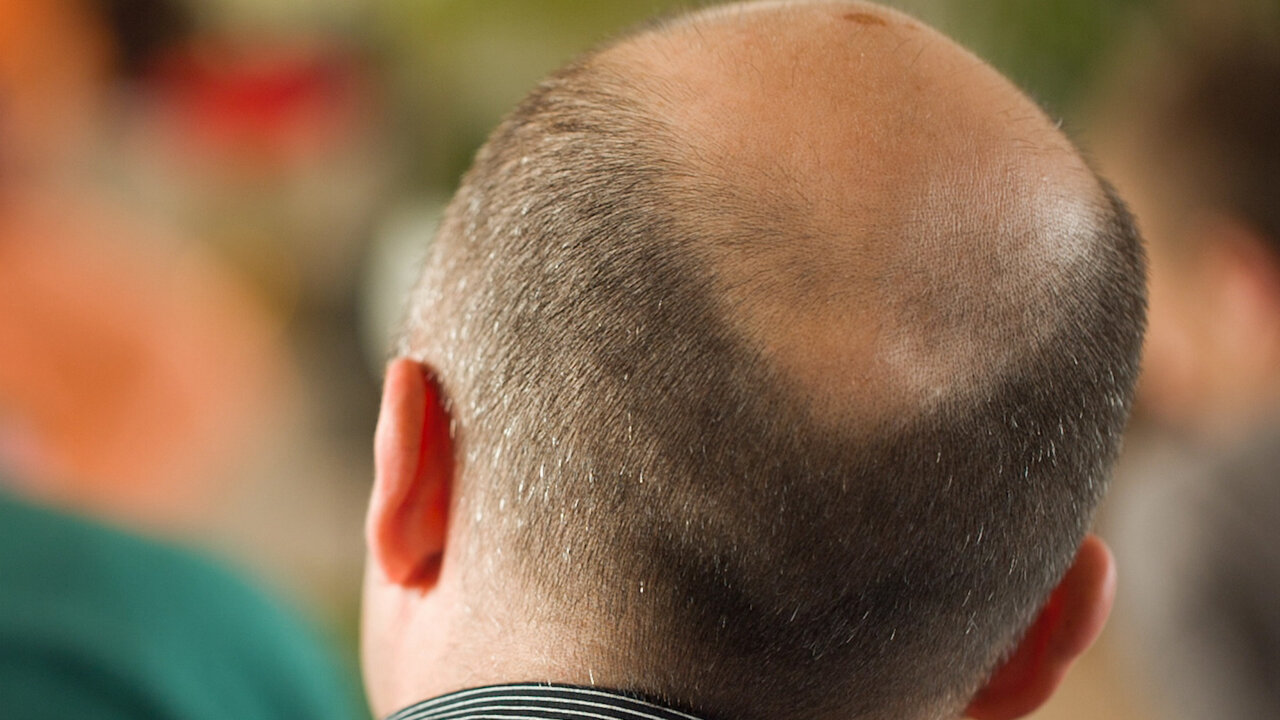
Welcome to Ask Doctor Zac, a weekly column from news.com.au.
This week, Dr Zac Turner explains why some men go bald and others don’t.
Question: Hi Dr Zac, I’m married to a very macho man. He has carpet instead of hair on his chest, big muscles and a libido that would put a Roman emperor to shame!
After all these years of marriage I still think he’s the sexiest man in the world. But it’s his confidence that I love more than anything.
I’ve noticed in the past few months though his hair has begun to thin, and I’m not sure if he has realised yet. He takes great pride in his manliness, and I fear him going bald will tear down his self-confidence that I find his most attractive attribute.
I’ve been told by my girlfriend it’s his high testosterone that is thinning his hair, is this true? Is there anything else that could be causing his hair to thin? – Rosie, 44, Melbourne
RELATED: Doctor on what ‘terrifies’ men most
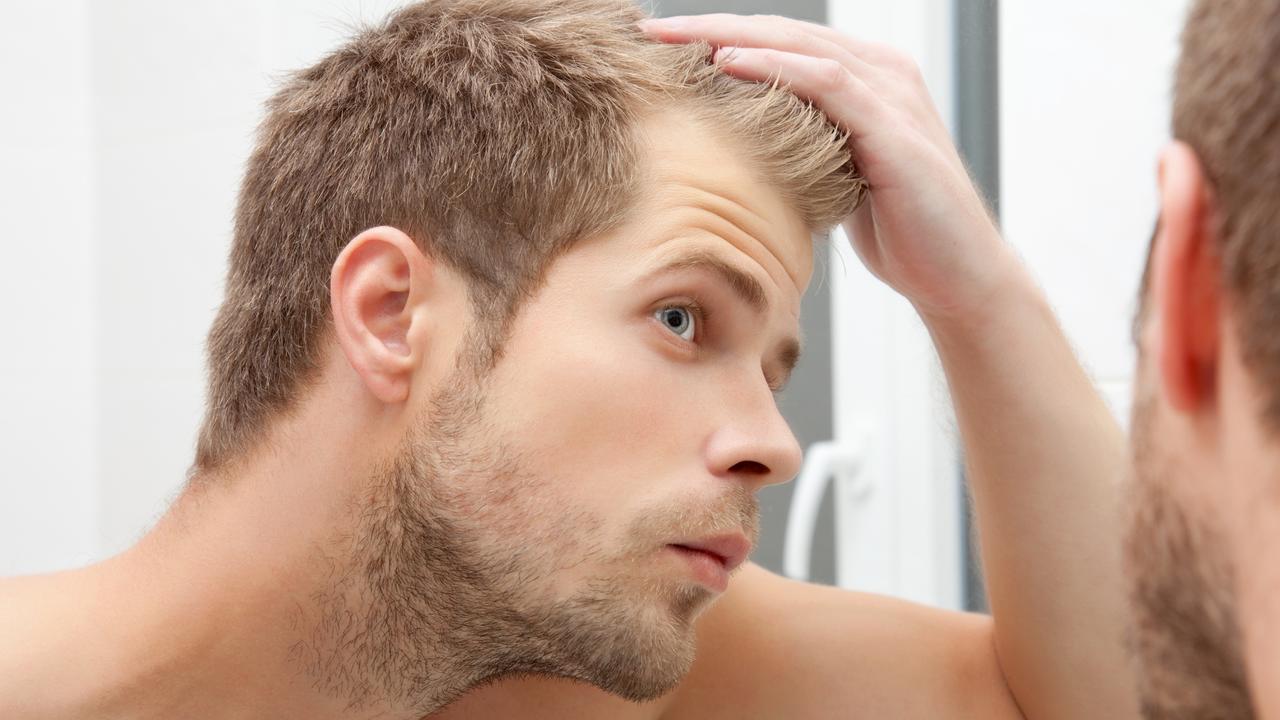
Answer: Hi Rosie, there’s a few things to unpack here so let’s go through it step by step. I’ll give you an answer to your testosterone question but first let’s get back to basics.
Now, what is hair? Hair is made nearly entirely of Keratin, which is a hard protein synthesised by the body from amino acids circulating in our blood. We have more than 100,000 hair follicles on our head, and believe it or not, millions all over our body. Some are so tiny they can’t be seen with the naked eye, and others just don’t grow any hair.
The only living part of a strand of hair is the root (sometimes known as the bulb), which is attached to the base of the follicle. The follicle supplies oxygen and nutrients to the root, and lubricates the hair shaft with an oily substance called sebum.
There’s a difference between natural hair loss and balding, and it’s important to make the distinction.
Everyone loses hair as part of their hair’s natural growth cycle. We lose up to 50 – 100 strands of hair each day!
The natural hair-loss cycle occurs in three stages
The first part of the cycle, the Anagen stage, refers to when hair is actively growing and lasts two to eight years. The Catagen stage is a short transition phase when the hair stops growing and prepares to shed. The telogen stage is the last stage where the hair is expelled from the follicle. After this the follicle stays dormant for around three months before a new hair starts to sprout.
In the case of your husband, if the thinning continues for longer than a few months, he may be balding and not in the last stage of natural hair loss.
RELATED: Doctor reveals diet that actually works
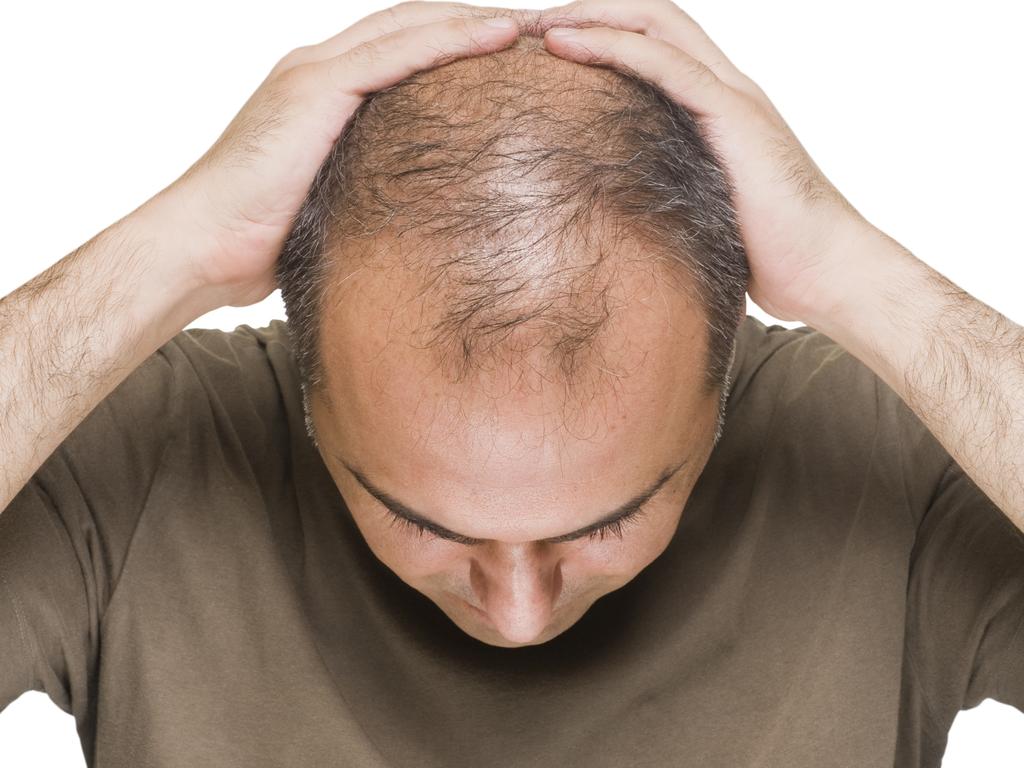
Now onto your testosterone theory, which I assume your girlfriend read off the internet one time and took it as gospel. I can’t stress enough for people to put on their critical thinking caps when it comes to medical research they read on the internet.
Researchers have suggested high-levels of testosterone might lead to baldness. The keyword in that sentence is, ‘might’. No other study has backed up this bogus claim, and many others have shown it has nothing to do with testosterone levels and all to do with genetic and environmental factors.
Castrated men, who have almost no testosterone, have been shown to retain their hair or go bald. So let’s put that myth to bed for once and for all!
Age, stress and other factors can influence whether you experience hair loss but genes play the significant role, and men who have close male relatives with Male Pattern Baldness have a much higher risk of developing it themselves.
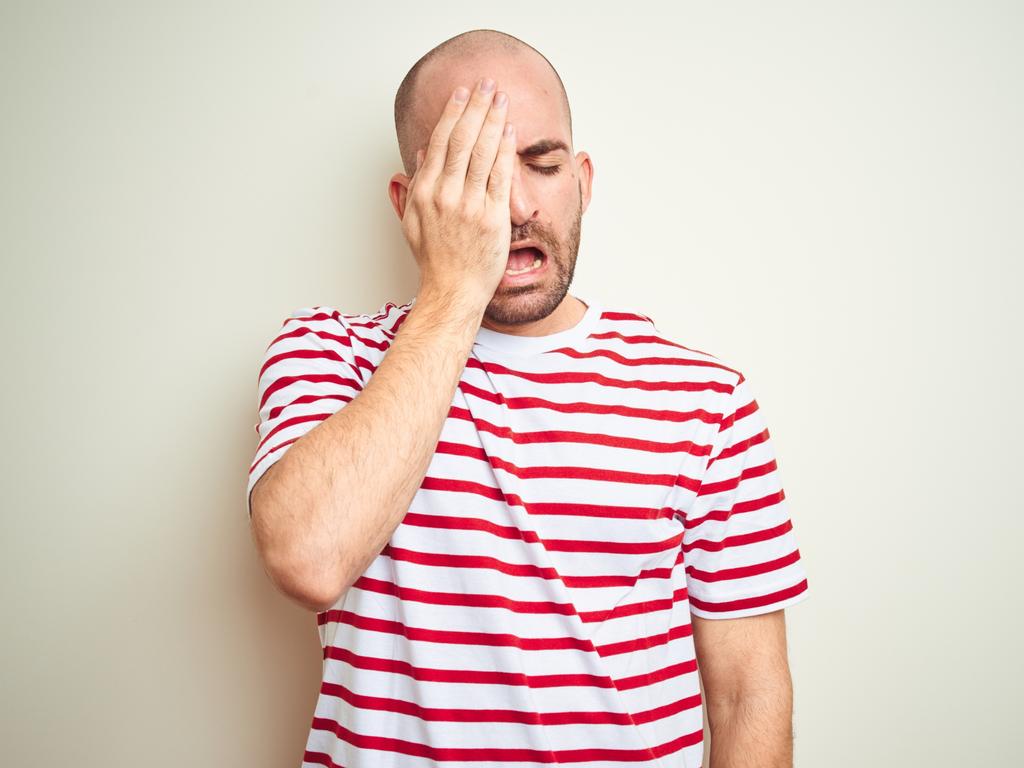
Several genes are thought to be involved, all linked to hair follicles becoming sensitive to circulating testosterone – this is where that misinformed theory gets its basis from! It’s not about the level of testosterone, but your hair follicles’ dihydrotestosterone (DHT) receptors being genetically more predisposed and sensitive to testosterone!
It’s the androgen receptor (AR) gene that causes this hair mayhem. It’s responsible for priming the DHT receptors in hair follicles that interact with testosterone. If your receptors are particularly sensitive, they are more easily triggered by even small amounts of the hormone, and hair loss occurs more easily as a result.
I recommend you investigate your husband’s family tree with him and check out some old photo albums at his grandparents’ home. If you see balding relatives, you have your answer.
If you believe this is a point of contention for your husband’s self-esteem, make sure you treat the situation very delicately. Sit your husband down and let him know you’ve noticed his hair has been thinning and that he should seek the advice from his doctor.
We now have access to a multitude of hair treatments which can reverse balding very successfully. I recommend your husband visit his doctor to get a referral to a trichologist (hair specialist).
Dr Zac Turner has a Bachelor of Medicine and Bachelor of Surgery from the University of Sydney. He is both a medical practitioner and a co-owner of telehealth service, Concierge Doctors, and is also a qualified and experienced biomedical scientist | @drzacturner



